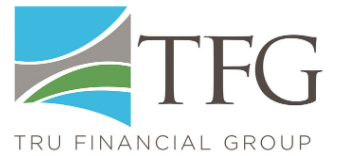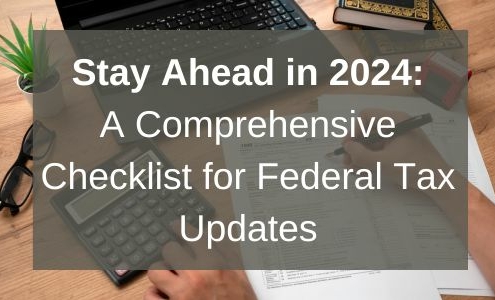
Stay Ahead in 2024: A Comprehensive Checklist for Federal Tax Updates
Explore the upcoming 2024 Canadian tax changes affecting investors, business owners, and high-net-worth individuals. From capital gains adjustments to new incentives, stay informed with our comprehensive checklist.
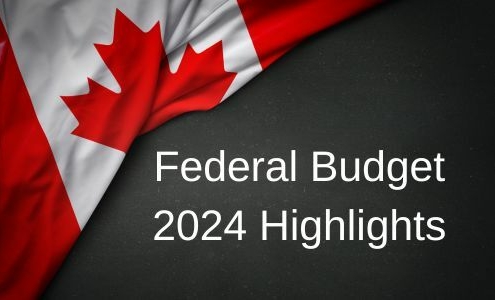
2024 Federal Budget Highlights
On April 16, 2024, Canada's Deputy Prime Minister and Finance Minister, Chrystia Freeland, presented the federal budget.
While there are no changes to federal personal or corporate tax rates, the budget introduces:
• An increase in the portion of capital gains subject to tax, rising from 50% to 66.67%, starting June 25, 2024. However, individual gains up to $250,000 annually will retain the 50% rate.
• The lifetime exemption limit for capital gains has been raised to $1.25 million. Additionally, a new one-third inclusion rate is set for up to $2 million in capital gains for entrepreneurs.
• The budget confirms the alternative minimum tax changes planned for January 1, 2024 but lessens their impact on charitable contributions.
• This year's budget emphasizes making housing more affordable. It provides incentives for building rental properties specifically designed for long-term tenants.
• Introduces new support measures to aid people buying their first homes.
• Costs for specific patents and tech equipment and software can now be written off immediately.
• Canada carbon rebate for small business
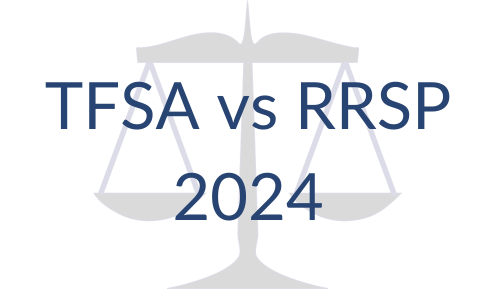
TFSA vs RRSP – 2024
When looking to save money in a tax-efficient manner, Tax-Free Savings Accounts (TFSA) and Registered Retirement Savings Plans (RRSP) can offer significant tax benefits. The main difference between the two is that TFSAs are ideal for short-term goals, such as saving for a down payment on a house or a vacation, as its growth is entirely tax-free, while RRSPs are more suitable for long-term goals such as retirement. When comparing deposit differences, TFSAs have a limit of $7,000 for the current year, while RRSPs have a limit of 18% of your pre-tax income from the previous year, with a maximum limit of $31,560. In terms of withdrawals, TFSAs have no conversion requirements and withdrawals are tax-free, while RRSPs must be converted to a Registered Retirement Income Fund (RRIF) at age 71 and withdrawals are taxed as income.
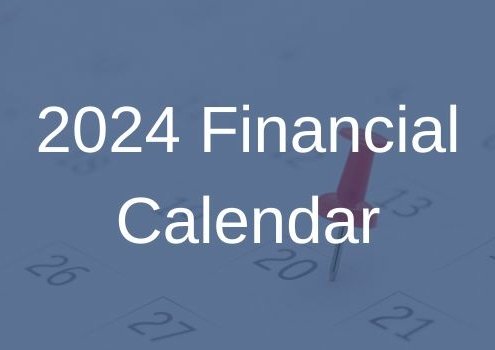
2024 Financial Calendar
Stay ahead in 2024 with our comprehensive financial calendar! From tax filing to benefit distributions, we guide you through key dates like the $7,000 TFSA contribution and $8,000 First Home Savings Account. Bookmark now for a financially savvy year!
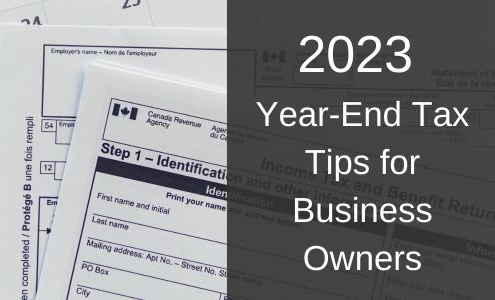
2023 Year-End Tax Tips and Strategies for Business Owners
Maximize your tax benefits as a business owner in 2023! Learn key strategies for salary vs. dividends, passive investments, and more.

Investing as a Business Owner 2023
Many business owners have built up earnings in their corporation and are looking for tax efficient ways to pull the earnings out to achieve their personal and business financial goals. We outline the factors to consider when investing as a corporation.

Salary vs Dividend
As a business owner, you have the ability to pay yourself a salary or dividend or a combination of both. In this article and infographic, we will examine the difference between salary and dividends and review the advantages and disadvantages of each.

Federal Budget 2023 Highlights
On March 28, 2023, the Federal Government released their 2032 budget. This article highlights the following financial measures:
• New transfer options associated with Bill C-208 for intergenerational transfer.
• New rules for employee ownership trusts.
• Changes to how the Alternative Minimum Tax is calculated.
• Improvements to Registered Education Savings Plans.
• Expanding access to Registered Disability Savings Plans.
• Grocery rebate.
• Deduction for tradespeople tool expenses.
• Automatic tax filing.
• New Canadian Dental Care Plan.

Nova Scotia 2023 Budget Highlights
On March 23, 2023, the Nova Scotia Minister of Finance announced the province's 2023 budget. These are some of the measures in it that may impact you:
• Expanding the More Opportunities for Skilled Trades (MOST) tax refund.
• A robust financial commitment to healthcare, focusing on mental health, long-term care, and retaining nurses.
• Supporting communities, including new housing initiatives and helping low-income families.

Ontario 2023 Budget Highlights
On March 23, 2023, the Ontario Minister of Finance delivered the province’s 2023 budget. Our article covers the highlights as follows:
• Corporate tax credits.
• Indirect tax changes.
• Increased healthcare options.
• Supporting communities.
• Supporting the economy and infrastructure.
